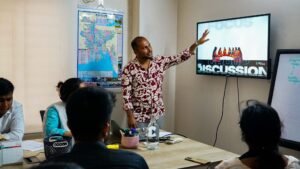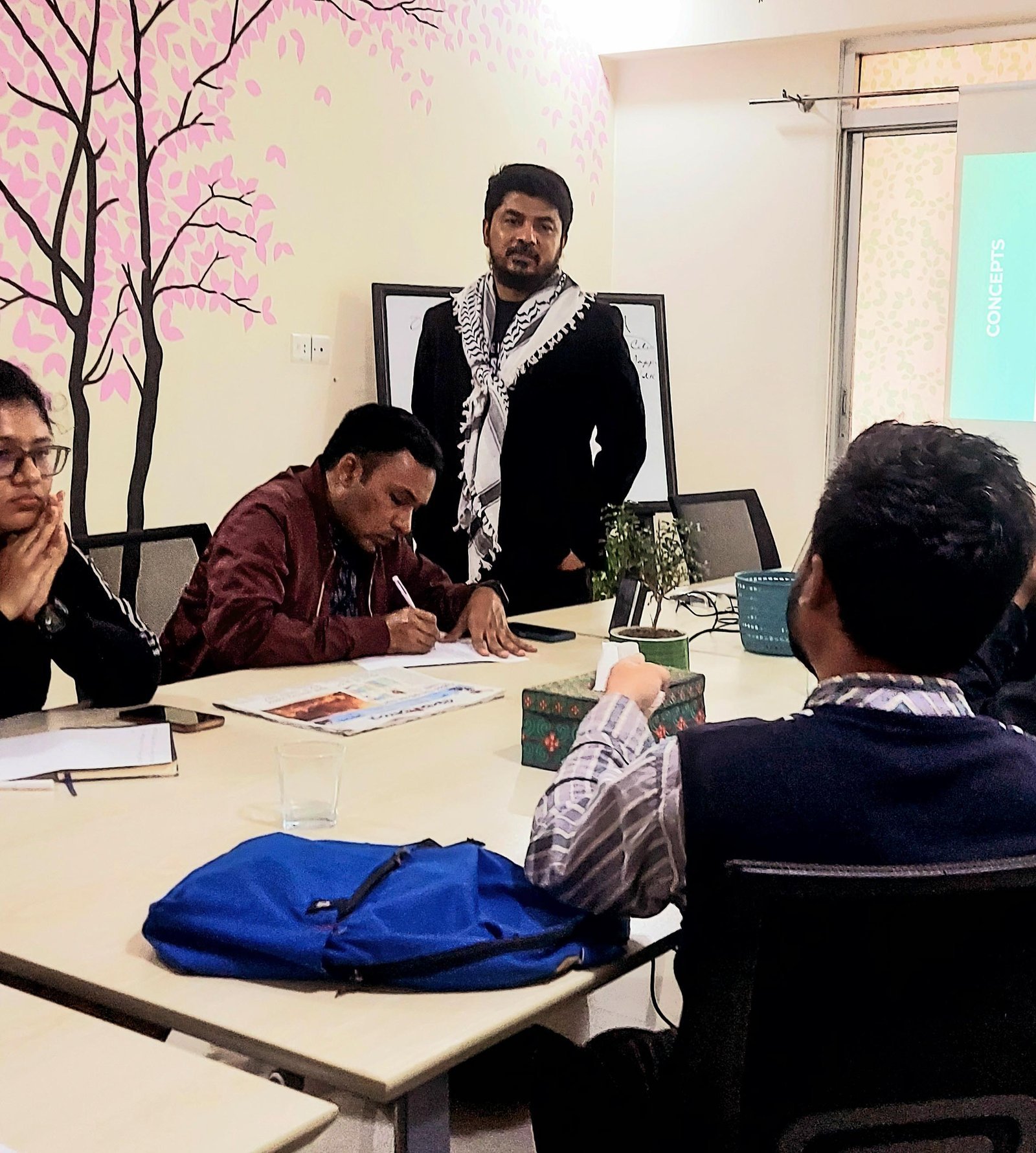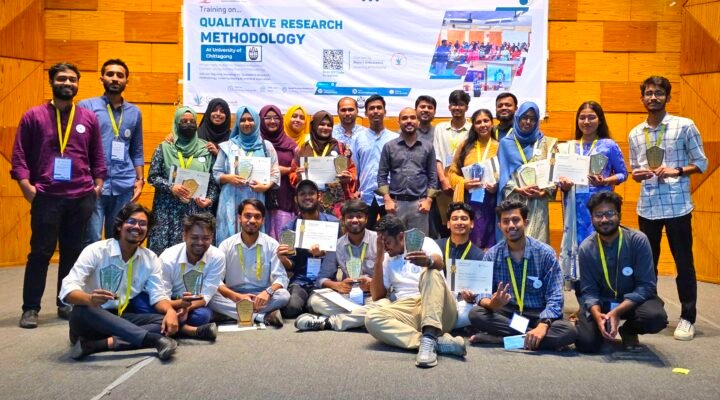Qualitative research is more than a methodology—it is an approach grounded in empathy, curiosity, and the pursuit of understanding. It seeks to uncover the deeper meanings behind human experiences, exploring how people make sense of their lives, cultures, and relationships. Recognizing the growing importance of these methods in health, education, and social development, the Centre for Qualitative Research (CQR) recently conducted a three-day Qualitative Research Training.
The training welcomed participants from 15 universities and medical colleges, each bringing diverse academic and personal backgrounds. The goal was to build foundational knowledge and practical skills for those aiming to explore the complexities of social phenomena through qualitative inquiry.

Introducing the Core of Qualitative Research
“There are also unknown unknowns, things we don’t know we don’t know.”
– Donald Rumsfeld, Former U.S. Secretary of Defense
This quote reflects the essence of qualitative research. It is a methodology used to gain a deep, contextual understanding of people through non-numerical methods and direct observation. At the outset, the training focused on the philosophy and significance of qualitative methods. Unlike quantitative data, which captures breadth, qualitative research aims for depth, allowing researchers to engage with context, emotion, and lived realities. The importance of ethical engagement, rapport building, and critical reflexivity was emphasized as the foundation of meaningful qualitative work.
Overview of Tools and Techniques Covered
A range of essential tools was introduced through guided sessions and real-time practice. Each method offered a unique lens for exploring human behavior and social context:
In-Depth Interviews (IDI)
Trained as a method for capturing detailed personal narratives, IDIs allow researchers to explore individual experiences, beliefs, and motivations in rich detail. Emphasis was placed on question design, probing techniques, and active listening.
Focus Group Discussions (FGD)
FGDs were presented as a technique to explore group dynamics, community norms, and collective perspectives. Participants learned how to facilitate balanced conversations and manage diverse viewpoints within group settings.
Key Informant Interviews (KII)
The role of KIIs in gathering strategic insights from individuals with specialized knowledge or influence was highlighted. Techniques for selecting informants, building trust, and capturing sector-specific information were discussed.
Observations
Observations offer a fascinating glimpse into behavior and environment, allowing us to uncover the true actions of people—not just their words. By taking a step back and watching what unfolds, we gain invaluable insights into what really drives human behavior. Participants explored both structured and unstructured approaches to observation in real-world contexts.
Case Studies
Case studies were examined to provide comprehensive and in-depth insights into specific events, institutions, or communities. Methodologies for integrating diverse data sources and developing analytical narratives were presented.
Research Ethics & Rapport Building
Special sessions addressed the importance of ethics in qualitative research—ensuring respect, confidentiality, and informed consent. The role of rapport in building trust with participants was underscored as a key factor in generating authentic responses.

Participant Engagement and Learning Experience
The training was not just theoretical—it was highly interactive. Participants actively took part in:
- Mock interviews and pilot testing, where techniques were applied in simulated scenarios
- Group case analyses, tackling challenges such as ethical dilemmas and contextual complexities
- Peer feedback and presentations, encouraging critical reflection and collaborative learning
The diverse mix of academic disciplines created a space for rich dialogue. Many participants shared personal insights, raised thoughtful questions, and connected the tools to their own research or professional interests. The hands-on nature of the training allowed for immediate practice and reflection—transforming knowledge into skill. This training provided valuable tools to gain actionable insights in their fields of study. The enthusiasm, curiosity, and commitment of participants were truly inspiring!

Outcomes and Reflections
By the end of the program, participants were left with a stronger understanding of qualitative methods, along with practical strategies to apply them in fieldwork, community engagement, or academic research. The experience fostered:
- Increased confidence in conducting interviews and facilitating discussions
- A deeper awareness of ethics and safeguarding
- Stronger capacity for critical thinking and contextual analysis
- Connections between like-minded individuals from across disciplines
Conclusion
By combining foundational knowledge with hands-on practice, the training created an environment where participants could not only learn but also reflect, engage, and grow. As qualitative research continues to play a vital role in understanding complex social realities, equipping emerging researchers with the right tools and ethical grounding remains essential. The experience of this training reinforces the value of listening deeply, asking meaningful questions, and approaching research with both rigor and empathy. This initiative marks another step toward building a community of researchers committed to inclusive, context-driven, and transformative inquiry.







